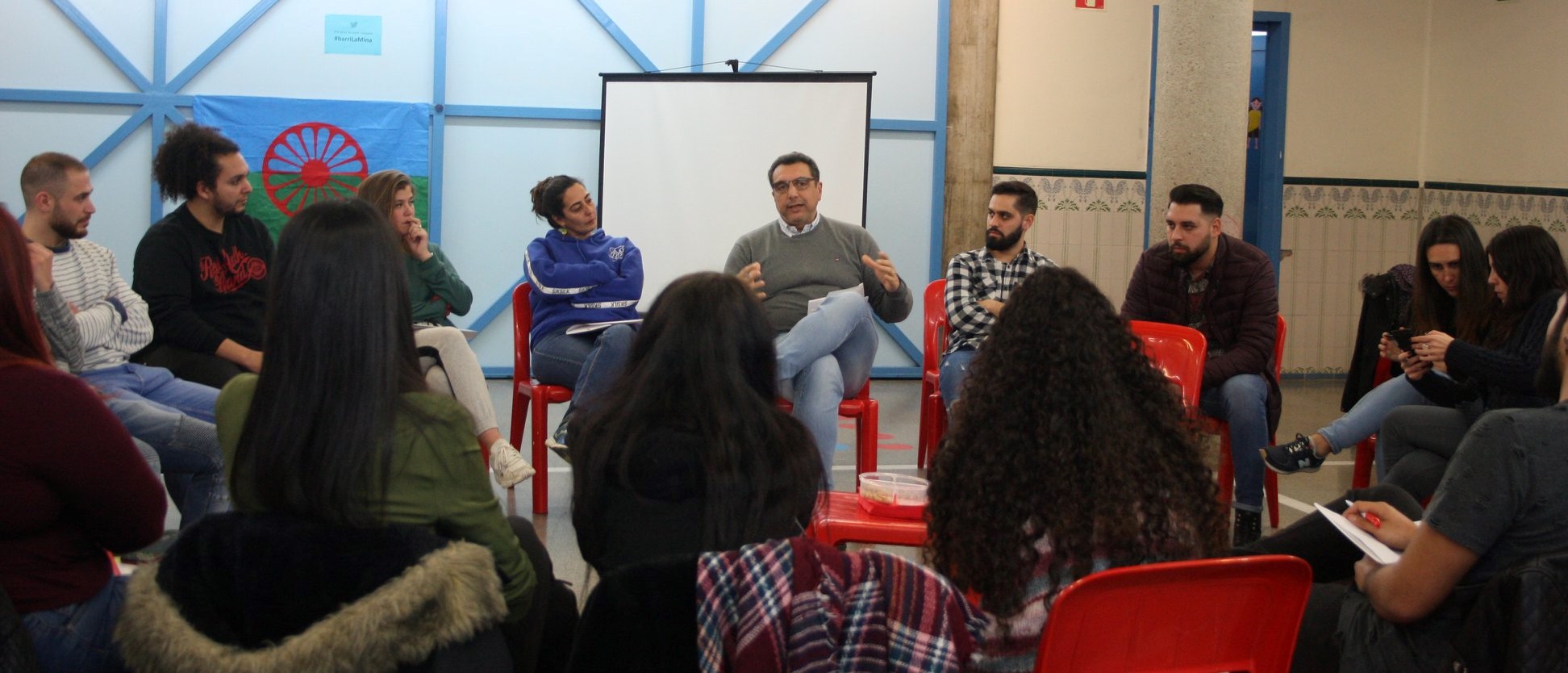A group of 22 young Roma met on February 7. 2020. from around Spain at the Civic Centre of La Mina, at the Roma neighborhood of Barcelona. There were a group of local Roma from parts of Barcelona, from La Mina, Sant Roc and Sabadell, plus 2 young Roma from Madrid, 1 from Sevilla, 1 from Valencia and 4 from Alicante.
The group from Barcelona met in the morning at the FAGIC office for a preparatory meeting for the training, because they felt they are not having the enough knowledge to be equally present at the training, so a morning session was organized them to discuss the main topics of the training.
Some of the participants had already took part in the past workshops run by FAGIC about political participation (from Terno Glaso and Sam Roma Sam Manusha projects) but the training also reached out to new participants active in civic life.
The training started with getting to know each other and the Roma Youth Voices project was introduced. The concept and ways of participation was introduced and the importance of Roma youth participation was discussed and good examples were shared from the Roma movement. Then it was continued with the rights and responsibilities of the public administration in Spain.
During the discussions we found out that three participants from the group are board members of different Roma associations, one is even a vice-president. On top of that, one of the participant was a member of a local council in his city and three other participants worked for Roma organizations. Because of the experience of the group, the training became a peer-to-peer training and they exchanged their experiences and learned from each other.
During the training a video made by the Portuguese Roma organization Letras Nomadas about their Roma political academy was shared then participants had a Skype call with Iñaki Vázquez, Roma activist from Plataforma Khetané who explained his own personal story how he became and activist and how important is to be active and participate in public and social life.
Finally, we gave space for the youngsters to express themselves and their opinions about the Roma movement in Spain. They all agreed that their voices are mostly unheard because the last generation of Roma leaders basically mute them or not listening seriously to them. Participants complained that most of Roma organizations in Spain have a huge control of the financial and technical resources which are not so eager to invest in projects proposed by Roma youngsters.
This lack of cooperation has been reported to be even deeper by young Roma women, who find themselves even more ignored because of their gender. Basically, they feel that the biggest obstacle for Roma youth empowerment is the lack of resources (economic and technical). This is why grassroot participation became difficult to maintain, these obstacles represent a serious de-motivation factor for young Roma, especially to the ones who besides their studies and jobs, have to take care of their families.
The training was organized by RGDTS in co-operation with FAGIC as part of the Roma Youth Voices project, funded by the Rights, Equality and Citizenship Programme of the DG Justice, European Commission.



